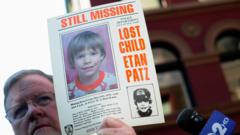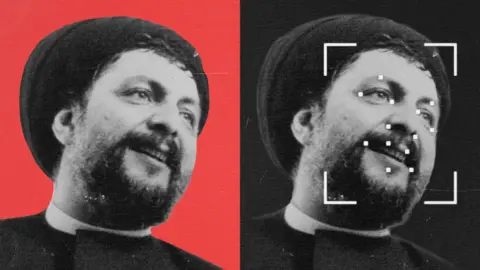A U.S. appeals court has ordered a new trial for Pedro Hernandez, the man convicted in 2017 for the 1979 murder and disappearance of six-year-old Etan Patz in New York City. Etan's disappearance, while he was on his way to a school bus stop in Manhattan, shook the city and became one of the most widely recognized missing children cases in U.S. history.
Hernandez, who was the owner of a convenience store, was initially convicted after a second trial followed a hung jury in 2015. He infamously confessed to luring Patz to a basement, where he allegedly attacked the boy. However, during the appeals process, Hernandez contended that the jury was given improper instructions that contradicted federal law and influenced their decision negatively.
The Second Circuit Court of Appeals stated, "We conclude that the state trial court contradicted clearly established federal law and that this error was not harmless.” In reaction to the ruling, a spokesperson from the Manhattan District Attorney's office noted they are reviewing the outcome.
The case had haunted investigators for decades, especially after the boy went missing from the SoHo area of Manhattan. Various campaigns highlighted his story, and his image appeared on milk cartons and posters nationwide, drawing attention to the plight of missing children. Despite thorough investigations—including involvement from the FBI—Etan has never been found.
In 2012, after a prolonged investigation period, authorities interrogated Hernandez, who admitted to luring Etan to the basement with promises of a drink before claiming he strangled him. Notably, the appeals court also recognized Hernandez’s documented mental health issues and low IQ, pointing out that he confessed to police after approximately seven hours of unwarranted questioning, before police administered his Miranda rights and recorded a subsequent confession.
Much of the prosecution’s case leaned on these confessions, but the appeals court highlighted that the jury’s questions about the validity of his confession might have been influenced by misleading instructions. After the jury sought clarification on whether they could disregard his subsequent confessions if they deemed the initial one involuntary, the presiding judge instructively told them no.
In the end, the jury convicted Hernandez of felony murder and kidnapping but acquitted him on the intentional murder charge. In his appeal, Hernandez argued that the jury instructions were inconsistent with legal standards and had unfairly biased their decision.
Although lower courts initially denied his appeals, the federal court ultimately sided with him, permitting the possibility of a new trial or Hernandez's release. Following the ruling, Hernandez's attorney, Harvey Fishbein, expressed gratitude towards the court, calling on the Manhattan District Attorney’s Office to abandon the charges and redirect their focus toward discovering those truly responsible for Etan Patz’s lasting disappearance.



















